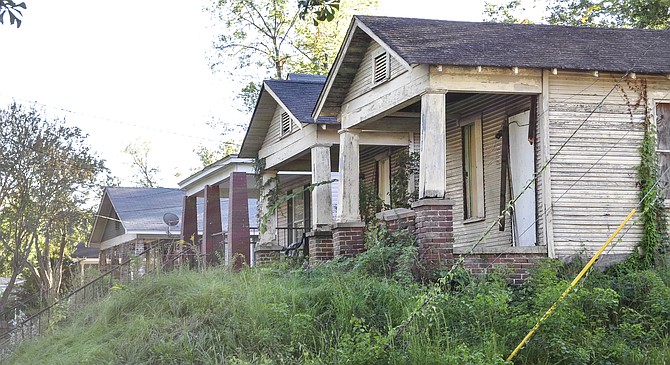More than half the counties in Mississippi have seen high rates of poverty for 30 years. The Jackson-based Mississippi Economic Policy Center will host a conference this week that aims to take a holistic approach to ending persistent poverty in the state. Photo by Trip Burns.
The U.S. may be digging out of the worst recession since the 1930s, but looking around Mississippi, you might not know it.
Today, public-school funding is still more than $600 less per student than before the Great Recession struck. Since 2008, the state has slashed K-12 funding by almost 13 percent, more than just about any other state, a report from the Washington D.C.-based Center on Budget and Policy Priorities shows.
Even as the national economy has recovered and revenues have ticked upward, Mississippi has failed to start reinvesting in education, the report states.
Meanwhile, children continue to face an uphill climb, nationally and in Mississippi.
A new report published Oct. 20 in the Journal of the American Medical Association concludes that children's well-being is at a 20-year low, with one in four children living with food insecurity and hunger and one in three battling obesity.
In addition, 7 million children still lack health insurance and every day, an average of five kids are killed with guns, the JAMA report shows.
"Poverty is a very complex issue, and there are a number of complex variables that create this situation. Because of that, we need a comprehensive approach to addressing it," said Dr. Corey Wiggins, executive director of the Jackson-based Mississippi Economic Policy Center.
In Mississippi, he points out, half the state's 82 counties have experienced persistent poverty, where at least 20 percent of the people have lived in poverty for three decades.
On Thursday, Oct. 30, MEPC will host a policy conference themed "Tackling Persistent Poverty: Why Here? Why Now?" at the Jackson Convention Complex.
The event coincides with the 20th anniversary of HOPE Enterprise Corp., a financial-services nonprofit that is also based in the capital city.
Each of the four convention plenary speakers will focus on a different framework to look at poverty. Michael Cormack, of the Mississippi-based Barksdale Reading Institute, will lead the discussion about education.
Nick Johnson with the Center on Budget and Policy Priorities will discuss state fiscal policy; Andrea Levere of the Corporation for Enterprise Development focuses on challenges to asset building; and Dwayne C. Proctor of the Princeton, N.J.-based Robert Wood Johnson Foundation will lead the discussion about health care.
"If (you) want people to have a good education, and you want people to work, and they need to work, then people need to be healthy," Wiggins said.
You need to have good schools, more money going into work-force development programs and making sure that people are able to build assets so that if they run into hard times, they have assets to help them come out those rough cycles."
The MEPC policy conference takes place Thursday, Oct. 30, from 8:30 a.m until 1:30 p.m. Registration is free. For more information and to register, visit mepconline.org.


